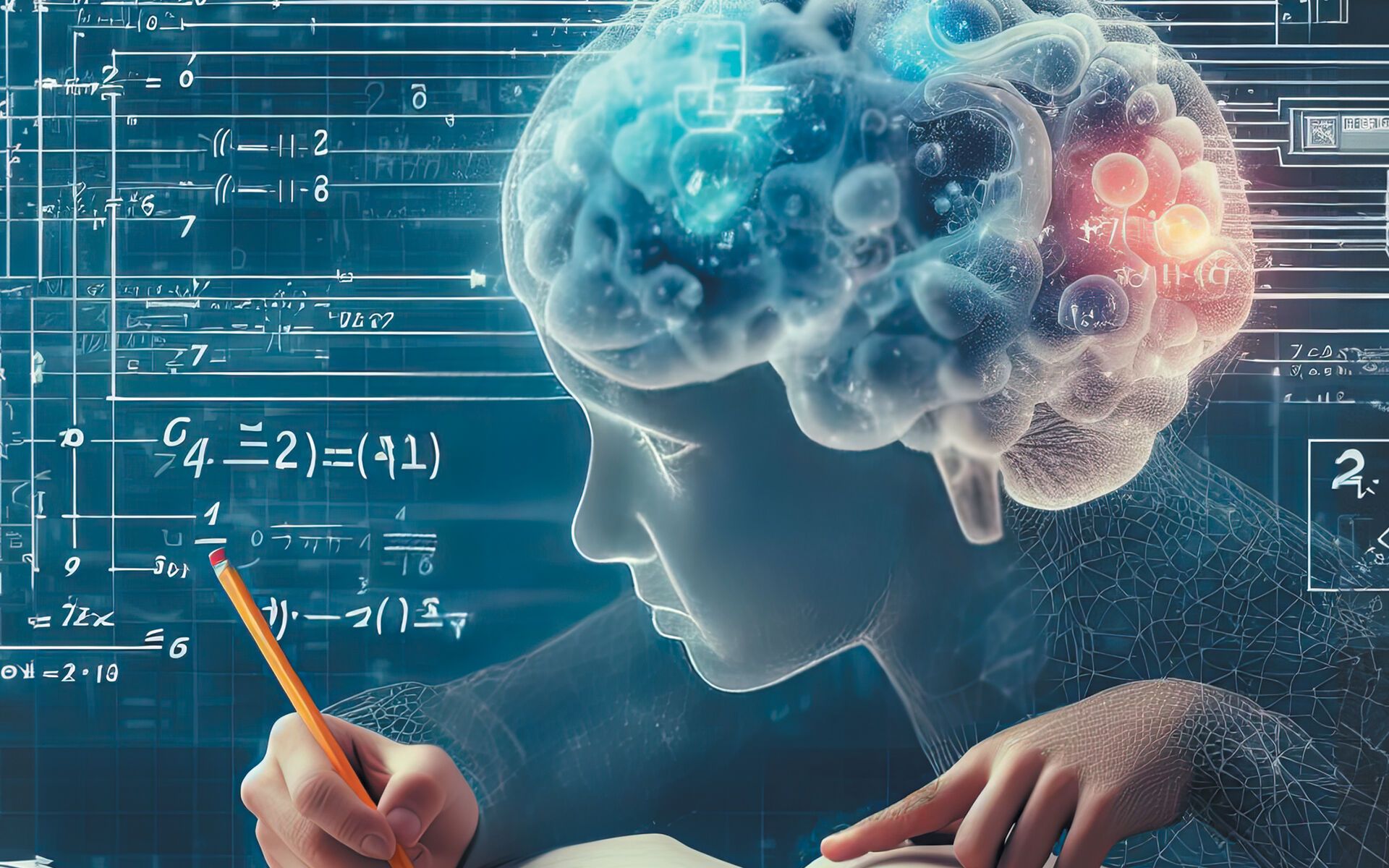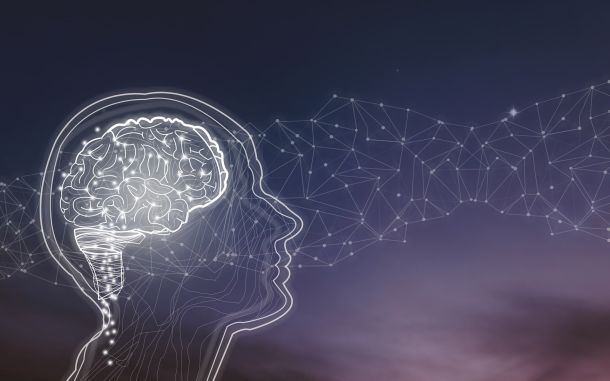Your Brain Will Thank You for Learning Math

In This Article
-
Engaging in mathematical activities such as problem-solving, mental calculations, and arithmetic practice can enhance neural connections and promote the formation of new brain cells.
-
When two neurons are consistently activated simultaneously their relationship becomes more robust. In other words, the more frequently we use a particular neural pathway, the stronger it becomes.
-
From deciphering natural patterns to unraveling the complexities of the universe, mathematics equips us with the tools to grasp and analyze the phenomena that shape our existence.
Among the captivating sciences that humanity has explored, mathematics holds a prominent place. Mathematics has always been an essential part of our daily life, from the fundamentals of arithmetic and algebra to the complexity of calculus and beyond. Math is a critical element of our problem-solving process, whether we're buying groceries, calculating taxes, or analyzing data. But, besides being a vital skill, mathematics has numerous benefits for our brain and overall health. While it may seem like learning math is a daunting and insurmountable task, even small efforts to improve our math skills can have significant benefits for our brains. This article will examine how learning math can help us improve our cognitive capacities, promote healthy aging, and increase our overall well-being.
Mathematics promotes neuroplasticity
The acquisition of arithmetic skills fosters neuroplasticity, highlighting one of its major cognitive benefits. Neuroplasticity is the ability of the brain to change through time, allowing us to learn, adapt, and grow. According to research, engaging in mathematical activities such as problem-solving, mental calculations, and arithmetic practice can enhance neural connections and promote the formation of new brain cells. The underlying principle allows for learning and memory, which is critical for our total cognitive health. Mathematics includes both tangible and abstract thinking, which can aid in the development of brain muscles. When we perform mathematical tasks, neurons are activated together, strengthening their connections. As a result, brain plasticity increases, and cognitive function improves. The more we practice arithmetic, the stronger our neural connections become, which leads to improved memory, reasoning, and problem-solving abilities.
The neuro-scientific theory that explains how neural connections are formed in the brain is called the Hebbian principle. According to this principle, when two neurons are consistently activated simultaneously their relationship becomes more robust. In other words, the more frequently we use a particular neural pathway, the stronger it becomes. This is commonly phrased as “neurons that fire together wire together.” An example of the Hebbian principle in action is London taxi drivers. It has been found that many taxi drivers in London have a significantly larger hippocampus, the part of the brain responsible for spatial navigation and memory. This is believed to be in relation to the fact that these drivers study and practice London’s complex network of streets and landmarks extensively so they can navigate entirely from memory. They are even required to take a knowledge test for this, which is famously challenging. The test, which is called the Knowledge, involves memorizing over 25,000 streets and 20,000 landmarks within a six-mile radius of Charing Cross. In addition to street names and landmarks, the test includes questions about the most efficient routes between locations, traffic regulations, and historical and cultural information about London. The amount of information that needs to be memorized for the Knowledge test is significant and requires extensive training and practice to master. By navigating the city's streets and landmarks repeatedly, taxi drivers activate the same neural pathways in their hippocampus frequently. This consistent activation strengthens the connections between the neurons in their hippocampus, resulting in a more extensive and efficient neural network. Similarly, learning mathematics requires us to consistently activate specific neural pathways in the brain, strengthening the connections between neurons and promoting neuroplasticity. By engaging in mathematical activities regularly, we can increase our capacity for abstract and concrete reasoning and improve our problem-solving skills and capacity for systemic thinking. These skills strengthen our mathematical abilities, enhance our cognitive abilities, and promote brain health.
Mathematics improves our cognitive abilities
Learning mathematics has been shown to improve cognitive abilities across our life span. Working memory stands as a crucial cognitive skill imperative for achieving proficiency in mathematics. Our cognitive ability to retain information in our minds is closely linked to mathematical performance. Basic math processes, such as counting apples in a basket, are simple examples of working memory. In contrast, calculating statistical significance and computing derivatives are complex examples. Mathematics is a problem-solving process that requires a lot of focus on the problem. When we have good selective attention, we can quickly discover the irrelevant parts of a complex issue. This process of particular attention allows us to focus our mental resources on the most relevant aspects of the problem, leading to improved problem-solving abilities. Furthermore, it has been demonstrated that engaging in mathematics enhances our attention and inhibition capabilities, crucial for effective cognitive control. Cognitive control involves maintaining attention and focus, inhibiting irrelevant information, and switching between tasks efficiently. These abilities are crucial for academic success and overall mental health.
Engaging in mathematics may promote healthy aging of the brain
Despite the decline in cognitive abilities that accompanies aging, research indicates that mathematicians retain an advantage in preserving their cognitive functions, particularly in tasks related to executive functioning and short-term memory. Older individuals practicing mathematics not only experience these benefits but also receive a recommendation from neurology scientists to hone their mathematical skills. Increasing evidence suggests that individuals who engage their brains through activities such as mathematics are less susceptible to the development of Alzheimer's and dementia. Consequently, the study of mathematics not only pushes individuals beyond their comfort zones but also provides a stimulating challenge for the brain, potentially mitigating the risk of this irreversible cognitive disorder. There have been several studies that suggest that engaging in math may promote the healthy aging of the brain. For example, a study published in the Journal of Neuroscience in 2013 found that older adults who engaged in cognitive activities such as playing games, reading books, and doing puzzles had less brain atrophy than those who did not. The study also found that the participants who engaged in more complex cognitive activities, such as learning a new language or doing challenging math problems, had even more excellent protection against brain atrophy. Another study published in the journal Neurology in 2017 found that people who engaged in more intellectually stimulating activities, including reading, writing, and doing puzzles, had a slower rate of cognitive decline than those who did not engage in these activities. The study found that this effect was powerful for people who played chess, took classes, or did math problems. A 2018 study published in the Journal of Alzheimer's Disease found that older adults who engaged in more intellectual activities, including reading, writing, and doing math problems, had superior cognitive function compared to those who did not engage in these activities. The study found that participants who engaged in more complex mental activities, such as learning a new language or completing challenging math problems, had even greater cognitive function.
Mathematics can contribute to healthy aging by enhancing overall brain health. Engaging in mathematical activities encourages the growth of new brain cells and strengthens existing neural connections. This can help prevent age-related cognitive decline and diseases like Alzheimer's and dementia. Moreover, studies have revealed that engaging in mathematical training can augment the size and activity of brain regions associated with problem-solving, spatial reasoning, and cognitive flexibility. With age, these regions typically diminish and decrease in activity, potentially leading to cognitive decline. However, consistent involvement in mathematical activities can serve to safeguard these critical brain functions, thereby fostering healthy aging. In addition to promoting brain health and cognitive abilities, learning mathematics can also benefit physical and psychological health. Participating in group math activities has been shown to have a positive effect on overall well-being and may even reduce the risk of developing dementia.
Mathematics serves as a means to comprehend and interpret the intricacies of the world. From deciphering natural patterns to unraveling the complexities of the universe, mathematics equips us with the tools to grasp and analyze the phenomena that shape our existence.
Even small efforts to improve our math skills can have significant benefits for our brains. Embracing mathematics represents a holistic mental exercise that fosters neuroplasticity, advances cognitive faculties, supports healthy aging, and uplifts overall well-being. By embracing math and challenging ourselves to learn new concepts, we can improve our brain health and become more well-rounded individuals. Mastering mathematics transcends the realm of equations and formulas; it offers an invitation to individuals of all ages and walks of life to embark on a journey of intellectual enrichment. Whether you're a student, a professional, or a retiree, there is always an opportune moment to commence your mathematical exploration and savor its myriad benefits.









